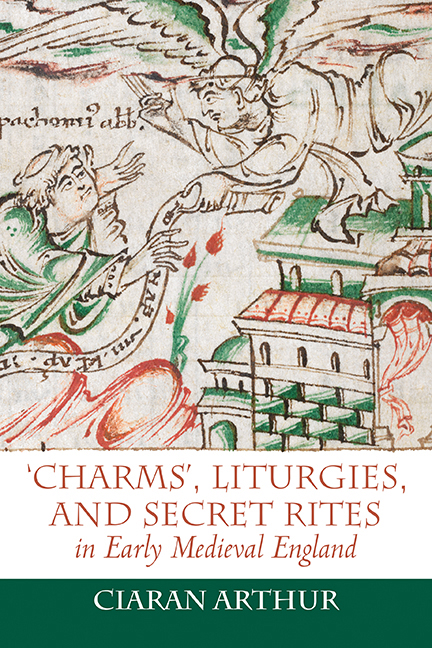Book contents
3 - Ite Missa Est: The Liturgical Nature of ‘Charms’
from Part II
Published online by Cambridge University Press: 27 July 2018
Summary
‘Ecclesiastical elements are found throughout the whole corpus of Anglo-Saxon medicine and magic. Paternosters accompany every conceivable medical process. Such elements are perhaps the least interesting of the factors in A[nglo-]S[axon] medicine, since they are known from many sources, are easily recognized, and still survive in folk-custom.’
This view of Charles Singer epitomises the traditional scholarly approach to the liturgical elements of Anglo-Saxon ‘charms’, and – to use an idiom – it is an unsatisfactory way of avoiding the elephant in the room. The extent to which these rituals draw upon liturgical texts makes it difficult to maintain distinctions between ‘charms’ and liturgy. Many ‘charms’ incorporate formulas from liturgical ordines, most prescribe the use of liturgical objects and prayers (including the Eucharist, holy water, incense, psalms, the Paternoster, the Creed, and litanies), and some are explicitly to be performed by priests or in the church building. Although some scholars have discussed possible liturgical sources for some of the ‘charms’, they have still tended to maintain distinctions between ritual genres.
Some manuscripts that contain ‘charms’ also include texts which are uncontroversially associated with the liturgy. London, British Library, MS Cotton Tiberius A. iii, for example, contains Athelwold's translation of the Rule of Benedict; London, British Library, MS Cotton Vitellius E. xviii contains calculations of liturgical feasts; London, British Library, MS Royal 4 A. xiv contains homilies and Jerome's Commentary on the Psalms; and the margins of Corpus 41 include homilies, chants for the clerical Office, and Mass prayers. The evidence of such manuscripts demonstrates that some Anglo-Saxon compilers and scribes grouped ‘charms’ with other texts that were concerned with the liturgy, and they evidently did so without any obvious concern about the texts that modern scholars distinguish from mainstream liturgy. Roy Liuzza has written about such groupings in manuscripts that focus on devotions to the cross, and argues that ‘charms’ were included in these collections because they have the same focus and function as other liturgical prayers and devotions.
- Type
- Chapter
- Information
- 'Charms', Liturgies, and Secret Rites in Early Medieval England , pp. 101 - 133Publisher: Boydell & BrewerPrint publication year: 2018



